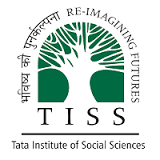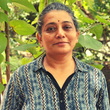About This Course
National Curriculum Framework for Teacher Education NCFTE, 2009 states, "Inclusive Education refers to a philosophical position and an arrangement of institutional facilities and processes. The aim is to create an integrated school setting providing equal opportunities to children with different abilities, varied social backgrounds and diverse learning needs” (NCTE, 2009, p. 13).
The philosophical position of this course is to value every individual and ensure equitable learning opportunities are provided for all. It also considers the broader concept of inclusion, from a focus on disability to celebrating diversity which includes a range of students’ abilities at one end of the spectrum to the gifted and talented at the other.
Teachers play key roles in inclusion as they are classroom change agents. This course would enable the creation of inclusive learning environments through teachers and teacher educators equipped with professional dispositions and skills, besides conceptual knowledge, to address the exclusion of all forms. They would also be given opportunities to reflect critically on their beliefs and biases in a non-threatening atmosphere.
Course Objectives
- To provide an overview of historical, philosophical and legal underpinnings of inclusive education
- To critically reflect on beliefs and biases with a social justice perspective.
- To enable design and creation of inclusive learning environments.
- To develop and adapt practices for supporting diverse learning needs.
Who can join the course
- The person who joins the course must be a teacher.
- Has paid the fees for the course or the programme. (Cohort based supported by Cognizant Foundation)
Course Staff
Ms. Ruma Banerjee
Ruma Banerjee is the Chairperson of Seva-in-Action (estd1985), by profession she is a psychologist and has done her specialization in Community Based Rehabilitation (CBR) from the University of London. She has been actively working for three decades in the field of CBR and inclusive education (IE). She is a member of Central Advisory Board for disabilities (CABD), MSJ&E, GOI which is responsible for advising the Central Government in implementing RPD 2016. She is also a Member of the Executive Committee, General Council of RCI. She has been on various committees of the State and Central Government and review missions of GOI.
She has been a consultant to UNESCO for documentation of Teacher Education programmes and UNESCO publication for education. She has also been a consultant with the World Bank to develop teacher education materials in IE for GOI. At the international level, she is a consultant for Disability and Developmental Partners, United Kingdom for IE in Ethiopia.
Dr. Radhika Misquitta
Radhika is the Co-Principal and a founding member of the Gateway School of Mumbai. Her interests are in teacher education, in developing systemic supports for supporting children with disabilities,and in how technology can be harnessed to optimise learning. At Gateway, Radhika teaches Language to the High School students, supports teacher development, strategic planning, and with the research department.
Prof. Mythili Ramchand
Academic and the Co-Chairperson of the Centre of Excellence in Teacher Education (CETE) located at TISS Mumbai Campus. With a passion for education, Prof Ramchand has dedicated her research career to exploring the philosophy of education, initial teacher preparation, and inclusive education from a social justice perspective. Her research has spanned over a dozen studies, including Evaluation/Impact assessment of large-scale Government/NGO-driven projects in elementary schools.
Dr Sonia Sawhney
An Assistant Professor with the TISS-Azim Premji School of Education at the Tata Institute of Social Sciences, Hyderabad, since 2013. Her research interests include inclusive education and special educational needs, equity and social justice, child rights and socio-emotional well-being in schools. She pursues these interests by researching, teaching, publishing, conducting workshops and developing curriculum. Before moving to TISS, she worked as a teacher educator, an English and Social Science teacher and a junior headmistress at the primary school level.





